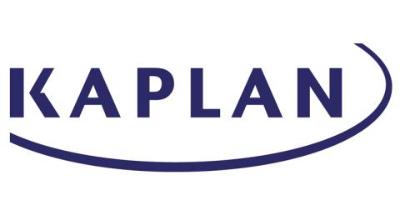What Makes an LLC a Great Entity for Freelancers

One common question freelancers ask us is which entity formation they should incorporate as for their business. There are several options available, ranging from corporations to S Corporations, and partnerships and nonprofits. While the answer ultimately depends on the business and its activities, one popular option is to incorporate as a limited liability company (LLC).
Are you a freelancer looking to take your business to the next level? You may choose to incorporate as an LLC for the following benefits.
Why Incorporate a Business?
Before we can dive into an LLC’s benefits, it’s a good idea to understand the reason why a freelancer would decide to incorporate their business.
General, most startups start off as a sole proprietorship. This is a default, unincorporated entity formation. It allows the owner of the business to exercise complete control over the company. They are responsible for everything that impacts the business, good and bad.
Sometimes, however, sole proprietors may find it’s difficult to navigate bad scenarios in business. For example, if the business is struggling to repay its debt there may be more at stake than its professional assets. The lawsuit may impact their personal belongings, like houses and cars.
This is where an incorporated entity may aid small businesses. Almost all entity formations, including LLCs, provide business owners with limited liability protection. This designates the business as a separate, legal entity and prevents the owner from being held personally responsible for debts and liabilities.
If you do not decide to incorporate your business, you’ll be able to remain a sole proprietor. However, freelancers that need an added level of protection with their business may decide to incorporate as an LLC.
LLC Benefits
Now that you more about what it means to form an LLC, are there any other benefits to incorporating as an LLC? Aside from limited liability protection, here are a few more advantages freelancers receive from this entity.
Ease in Tax Obligations
Forming an LLC can provide several tax benefits to freelancers, especially those that were previously operating under the sole proprietor umbrella.
The business is not a separate entity in a sole proprietorship. Therefore, sole proprietors are taxed on personal and business taxes. They are also responsible for paying self-employment taxes which covers Social Security and Medicare obligations.
This much tax responsibility can often be financially daunting for sole proprietors. Choosing to form an LLC makes it a bit easier to handle tax obligations.
An LLC has the flexibility to be taxed as a corporation, S Corporation, or C Corporation. Typically, many LLCs will elect to be taxed as an S Corp. Both entities have a pass-through entity status that allows for pass-through taxation. This means the profits of the business pass-through to the owners (or members, as they are known in an LLC) and are not reported at the business level. The members report profits and losses on their individual tax returns and avoid double taxation.
Choices of LLC Structures
Did you know that you can run an LLC as a specific structure type? There are three LLC structures available to meet the needs of owners running the LLC.
- Single member LLC. This structure is a good fit if the LLC has only one member, or owner.
- Member managed LLC. Does your LLC have several members? If so, you may decide to form a member managed LLC. This allows the members to share the same amount of responsibility in running and operating the company.
- Manager managed LLC. Some LLC members need extra help to run the business. If you find that’s the case for your company, you may decide to go with a manager managed LLC. This type of LLC structure allows you to appoint a board of managers to oversee the LLC’s direction and operation rather than its members.
Flexible Nature
As mentioned earlier, LLCs provide tax designation flexibility to freelancers. They’re also a generally flexible entity for maintaining a business.
Fewer formalities and compliance requirements are necessary with an LLC. It’s also fairly easy to set up the entity and file its paperwork.
Form an LLC
If you’re a freelancer who still has questions about forming an LLC, it’s a good idea to meet with a CPA or trusted tax professional that can answer these questions for you. Once you know that an LLC is the right fit for your freelance business, reach out to MyCorporation. We’ll be able to assist you in the filing process to form an LLC and incorporate the business.
Deborah Sweeney is the CEO of MyCorporation.com. MyCorporation is a leader in online legal filing services for entrepreneurs and businesses, providing start-up bundles that include corporation and LLC formation, registered agent, DBA, and trademark & copyright filing services. MyCorporation does all the work, making the business formation and maintenance quick and painless, so business owners can focus on what they do best. Follow her on Twitter @deborahsweeney and @mycorporation.
Share This Article
What's Trending?
Trending topics & tools for the CPA community
How Firms are Rethinking Reasonable Comp (Quick Video)
It’s a short video and makes the value of repeatable, data-backed approach clear (especially compared to spreadsheets, gut checks and one-off calculations).
Learn how 8am CPACharge delivers clarity and confidence for accounting firms.
8am™ CPACharge brings invoices, payments, and reconciliation together in a solution designed to make your day easier from start to finish.
Seniors on Social Security Could Face $460 Monthly Cut to Benefits
Jim Komoroski, RSSA®, is quoted in Newsweek, offering expert insight into the projected monthly cuts to Social Security benefits should Congress fail to act.
Resources
Valuable information provided by our sponsors.
Specialize in Social Security
Looking to enhance your retirement planning expertise? Your solution: pursue the Registered Social Security Analyst®...
CPAdirectory members have access to discounted auto and home insurance
At CPAdirectory, we think it's a good thing to provide our members with access to...
Free CPE Course: ChatGPT for Tax Pros — Limited Offer
CPAdirectory and CCH CPELink are giving you free access to the on-demand course: ChatGPT for...
PE Deals In Accounting: Valuations, Structure, Tradeoffs
In this webinar, you’ll hear from firm leaders and industry experts who will share real-world...
Stand Out as a Trusted Social Security Expert with the RSSA® Designation
Designed for CPAs, the Registered Social Security Analyst® (RSSA®) designation provides advanced training to help...
How Firms are Rethinking Reasonable Comp (Quick Video)
It’s a short video and makes the value of repeatable, data-backed approach clear (especially compared...












